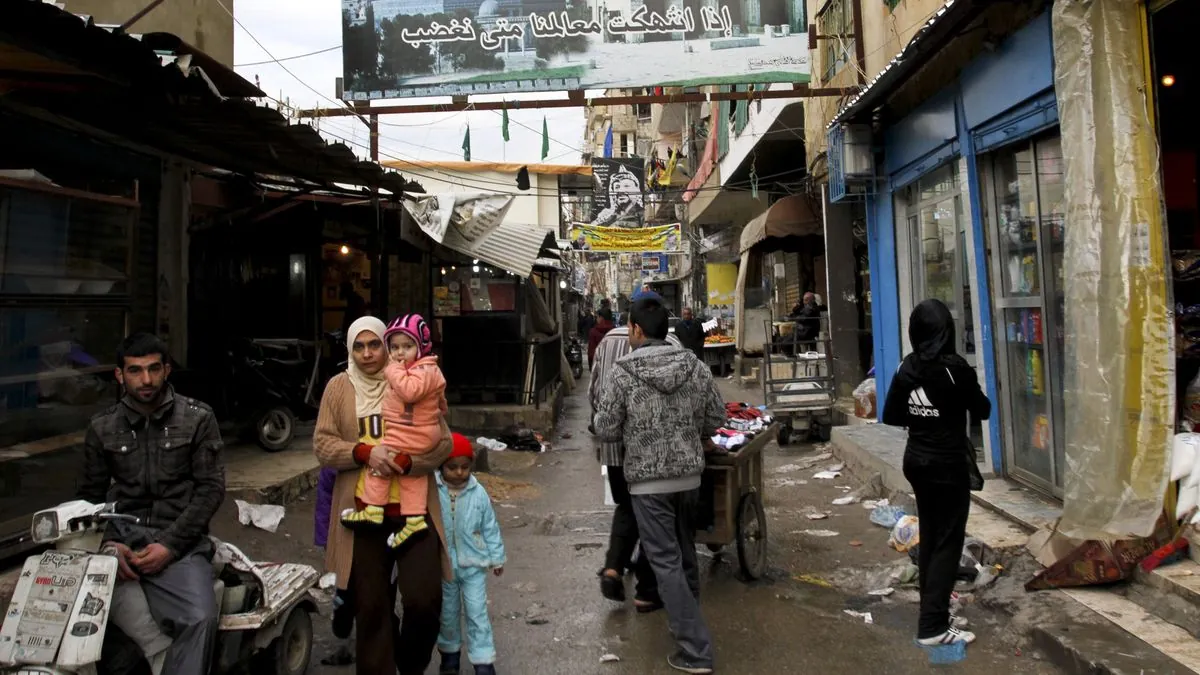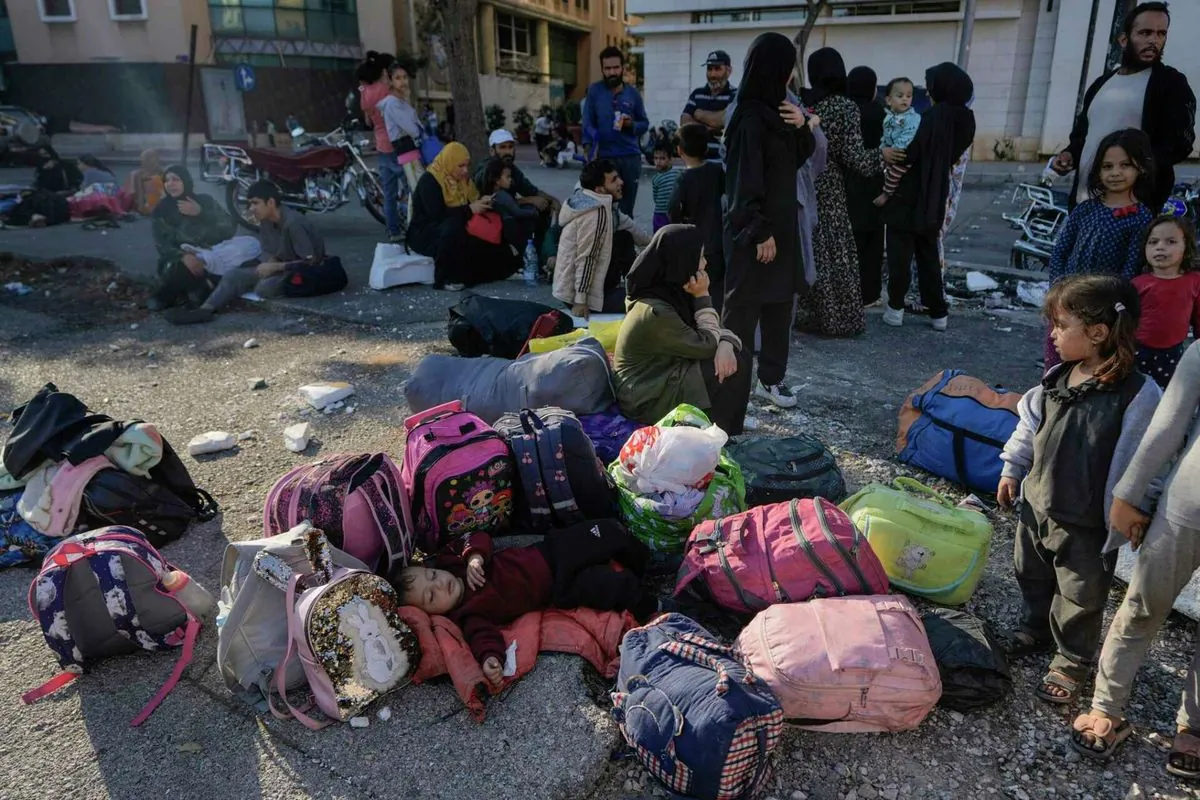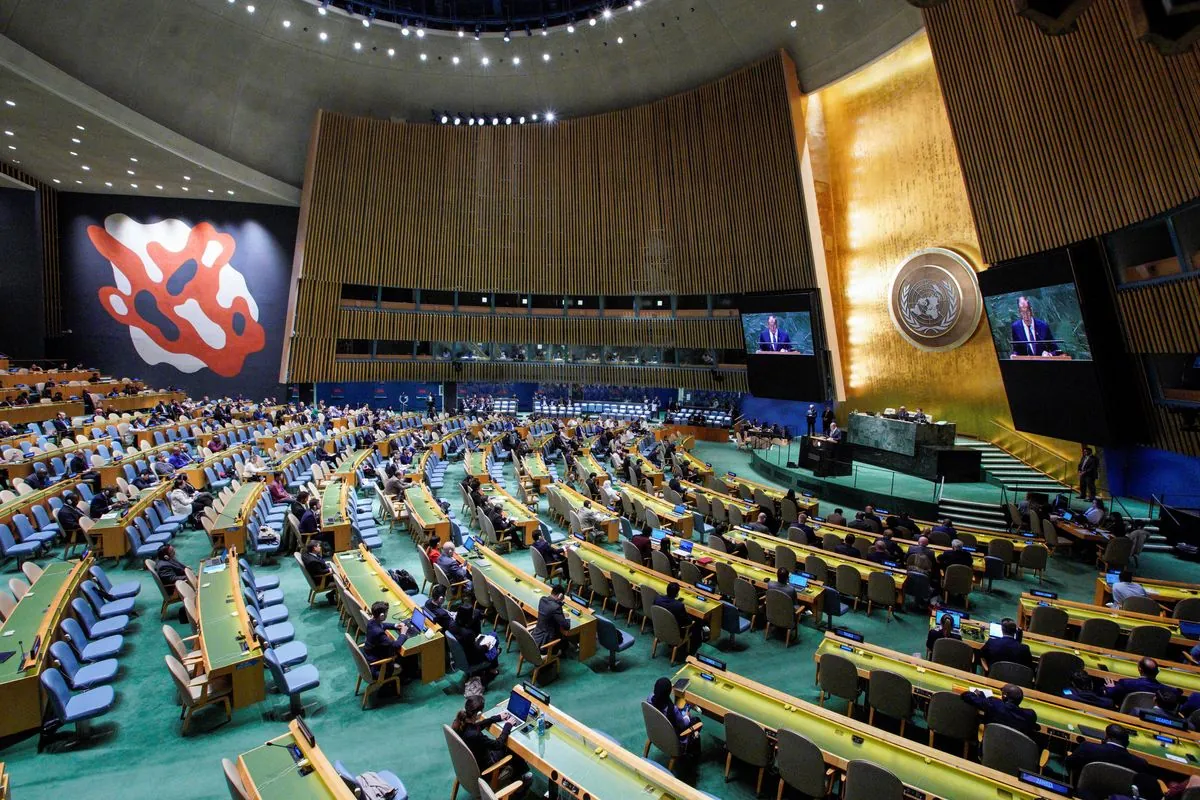Lebanon's Shelters Overwhelmed as Conflict Displaces Over 1.2 Million
UN reports Lebanon's shelters at capacity, forcing displaced to sleep in public spaces. Migrant workers face abandonment, while sealed Syrian border complicates evacuation efforts.

In a stark illustration of the ongoing crisis, Lebanon's nearly 900 government-established shelters have reached full capacity, forcing many displaced individuals to seek refuge in public spaces. This development comes as the conflict between Israel and the Iran-backed Hezbollah group has intensified over the past year, with the situation dramatically worsening in the last two weeks.
Rula Amin, spokesperson for the U.N. refugee agency, stated, "Most of the nearly 900 government-established collective shelters in Lebanon have no more capacity." This crisis has led to unconventional solutions, with some hotels and even Beirut nightclubs opening their doors to those in need.
The scale of displacement is staggering, with Lebanese authorities reporting over 1.2 million people forced from their homes. This figure is particularly alarming considering Lebanon's total population of approximately 5.5 million as of 2023. The conflict has also claimed nearly 2,000 lives, mostly within the past fortnight.
Mathieu Luciano, head of the International Organization for Migration's office in Lebanon, described the dire situation: "Roads are jammed with traffic, people are sleeping in public parks, on the street, the beach." This crisis is exacerbating Lebanon's already fragile state, as the country has been grappling with a severe economic downturn since 2019, during which its currency has lost over 90% of its value.

The current displacement crisis is reminiscent of the 2006 Lebanon War, which lasted 34 days and resulted in significant casualties and displacement. However, the current situation is unfolding against a backdrop of multiple crises, including the aftermath of the 2020 Port of Beirut explosion, which caused massive destruction and displacement.
A particularly vulnerable group in this crisis is the tens of thousands of migrant workers, predominantly female live-in domestic workers. Luciano expressed concern for these individuals, many of whom are being "abandoned" by their fleeing employers. "They don't have papers...and as a result, they are reluctant to seek humanitarian assistance because they fear that they may be arrested and they may be deported," he explained. This situation is compounded by language barriers, as many workers come from countries such as Egypt, Sudan, and Sri Lanka.
The crisis has also severely impacted Lebanon's education system, with many schools now serving as shelters. This disruption adds to the challenges faced by a system already strained by multiple crises, including the economic downturn and the COVID-19 pandemic.
Complicating evacuation efforts, Israeli strikes have sealed off Lebanon's main border crossing with Syria. Despite this, Amin reported that some desperate individuals are crossing on foot. "We could see that people were walking, desperate to flee Lebanon, and so they walked actually through that destroyed road," she said.
The impact on children is particularly concerning, with around 60% of the more than 185,000 people who have arrived in Syria being children and adolescents, sometimes without their parents. Amin noted, "As they flee the bombings, families arrive with profound physical and emotional fatigue and huge needs for support."
This crisis is unfolding in a country that already hosts the highest number of refugees per capita in the world, including a significant Palestinian refugee population. Lebanon's complex political landscape, based on a power-sharing agreement among 18 officially recognized religious groups, has been further strained by the absence of a president since October 2022.
As Lebanon grapples with this humanitarian crisis, it also faces ongoing challenges including frequent power outages, fuel shortages, and environmental issues such as waste management problems. The country's healthcare system, already under severe strain due to economic issues and COVID-19, is now facing additional pressure from the influx of displaced persons.
The international community's support will be crucial in addressing this multifaceted crisis, as Lebanon struggles to cope with the needs of its displaced population while navigating its own economic and political challenges.
"Most of the nearly 900 government-established collective shelters in Lebanon have no more capacity."


































